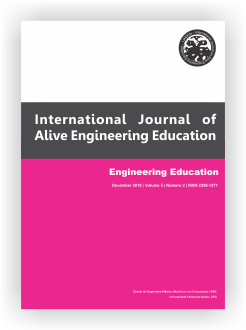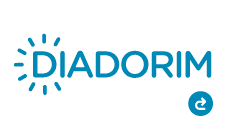Alternative Method of Internal Mobility for The Campus do Vale on UFRGS
DOI:
https://doi.org/10.5216/ijaeedu.v5i2.55124Resumo
The Center for Educational Engineering – NEED of the Federal University of Rio Grande do Sul’s School of Engineering has fostering the continuous improvement and innovation of engineering education through the development of innovative teaching practices as its goal. The project “Freshmen Reception – UFRGS Challenge” – 2017/1 was created as proposed. In this sense, NEED, drawing from concepts of active learning issued to the freshmen the challenge of how to make UFRGS more sustainable, making it possible to associate theoretical knowledge with practice. Through the proposed challenge, the Ciclo Camp project was developed by a group of freshmen from the SE’s various engineering courses, who suggested an alternate mean of internal transportation within the Valley campus. The project aims to provide a new form of transit for the student community, grounded on the concept of clean transportation. The project is about the rental of bicycles through a cellphone application to active students and staff members at UFRGS, for internal use within the Valley Campus. Stemming from this concept, the present article weaves an analysis of the acceptance of internal bicycle rental and sharing at UFRGS, besides proposing actions for the improvement of its most relevant aspects. For the evaluation and possible realization of the project, it was decided to elaborate and apply a survey to 155 currently enrolled students at UFRGS, in order to identify categories of applicability and economic applicability. The survey is structured in three major phases: a diagnosis performed through the questionnaire, validation of the data and analysis of the obtained results. As a result, it was observed that students reported being late to classes throughout the academic term due to the distance between the main locations of the Campus as well as claimed that the use of bicycles is a time-saving and facilitating method. As such, the students agree to make a symbolic payment for the maintenance of the bicycles, as well as to utilize the cellphone application. The need for the implementation of the Ciclo Camp project in the Valley Campus could be verified based on the diagnosis. After conducting the analysis of the results, an action plan was put in place, based on the Golden Circle process, a concept developed by leadership specialist Simon Sinek in order to create and develop the value of new ideas through a simple methodology. For the studies on the scope of the usage of bicycles as sustainable means of transportation, it is suggested through this article that the bicycles for the Ciclo Camp project be made in the institution’s metallurgical laboratories out of scrap metal coming from UFRGS itself.
Downloads
Publicado
Edição
Seção
Licença
Ao submeter eletronicamente um artigo na Revista Eletrônica Engenharia Viva, o responsável pela submissão:
a) Declara que o documento em questão é um trabalho original, e que detém prerrogativa de conceder os direitos contidos nesta licença. Declara também que a entrega do documento não infringe, tanto quanto lhe é possível saber, os direitos de qualquer outra pessoa ou entidade.
b) Se o documento em questão contém material do qual não detém os direitos autorais, declara ter obtido autorização do detentor dos direitos autorais para conceder à Universidade Federal de Goiás os direitos requeridos por esta licença, e que esse material cujos direitos são de terceiros está claramente identificado e reconhecido no texto ou conteúdo do documento em questão.
c) Declara ainda que qualquer pessoa nomeada como autor ou co-autor do documento tem consciência do fato e concorda em ser assim nomeado.
Termo de Autorização
Na qualidade de responsável pela submissão do documento, autorizo a Escola de Engenharia Elétrica, Mecânica e de Computação da Universidade Federal de Goiás (EMC/UFG) a disponibilizar a obra, gratuitamente, por meio do Sistema Eletrônico de Editoração de Revistas da UFG (SEER/UFG) ou na forma impressa, sem ressarcimento dos direitos autorais, de acordo com a Lei nº 9610/98. Fica permitido, a leitura, a impressão e/ou download, a título de divulgação da produção científica brasileira. Qualquer uso da obra que não o autorizado sob esta licença ou pela legislação autoral é proibido.



